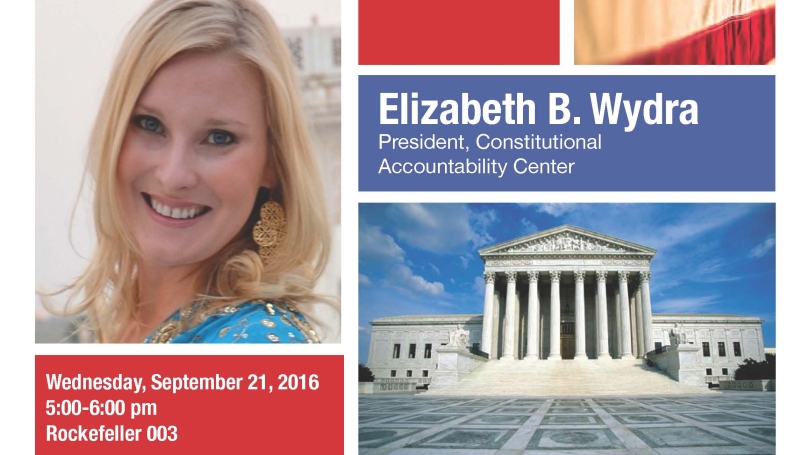
Menu
- Public Policy
- Leadership
- Funding
- News & Events
- About the Center
Back to Top Nav
Back to Top Nav
Back to Top Nav
Back to Top Nav
It is no secret that the 2016 presidential election cycle has been littered with tension, controversy, and surprises — not the least of which was the sudden passing of the late Supreme Court Justice Antonin Scalia. With this, a seat that once belonged to arguably the most conservative Supreme Court Justice in recent memory has opened up, heating up an already heated election cycle. With two current Justices in their 80’s, and a third trailing close behind, the president who wins the 2016 election may have an unparalleled opportunity to remake the Supreme Court in their image. Considering the Supreme Court’s power of judicial review, such an event would most certainly reverberate throughout the country, under not only the next president but also under the many presidents to come.
The intensity of the debate surrounding the now-vacant seat on the Supreme Court attests to its critical importance in American politics — an importance that stems from its unique relationship to the United States Constitution. The Constitution can be said to be the foundation of American identity, values, and, most importantly, law. With its power of judiciary review, the Supreme Court is the key institution maintaining the relationship between the rights enumerated on that document by our founding fathers centuries ago and the country we are today. The Supreme Court has for centuries interpreted the Constitution, defined our rights and freedoms, and contended with the country’s most pressing issues, and it very much continues to do so during this time of pressing constitutional issues.
The Nelson A. Rockefeller Center is proud to have welcomed Elizabeth Wydra, President of the Constitutional Accountability Center (CAC), who gave an engaging lecture on the U.S. Constitution, its relationship with the Supreme Court, and the constitutional issues we face today. We together charted the Constitution’s story of progress and promise and investigate the Supreme Court’s role in interpreting and enforcing it while exploring the historical roots of the most pressing constitutional issues of our time — federalism, equality, inclusion — and what’s on the horizon.
A graduate of Claremont McKenna College and Yale Law School, Ms. Wydra joined the CAC from private practice at Quinn Emanuel Urquhart & Sullivan, where she was an attorney in the firm’s Supreme Court/appellate practice. She then served as the CAC’s Chief Counsel from 2008-2016 before becoming its president. Her legal practice focuses on Supreme Court litigation and high-stakes cases in the federal courts of appeals, and she has used her legal expertise to represent the CAC as well as clients, including congressional leaders, constitutional scholars and historians, state and local legislators, government organizations, and groups such as Justice at Stake, League of Women Voters, and AARP.
Written by Nicole Simineri ’17, Rockefeller Center Student Program Assistant for Public Programs
The views and opinions expressed and any materials presented during a public program are the speaker’s own and do not necessarily represent the views and opinions of the Rockefeller Center or constitute an endorsement by the Center.
What is Constitution Day?
Constitution Day is an American federal observance that recognizes the adoption of the United States Constitution and those who have become U.S. citizens. It is normally observed on September 17, the day in 1787 that delegates to the Constitutional Convention signed the document in Philadelphia, PA.